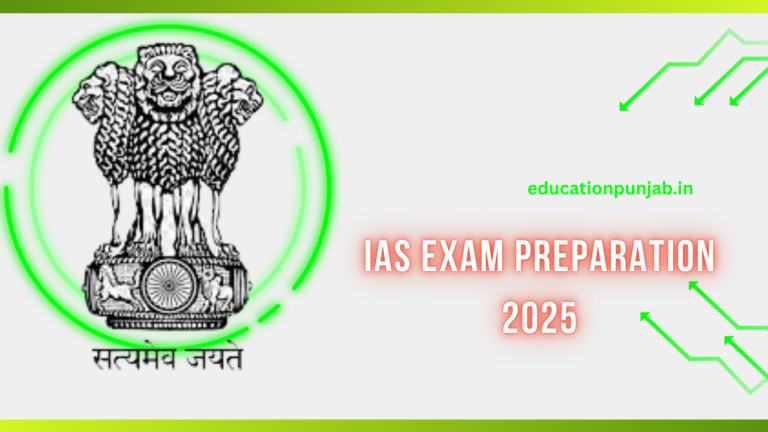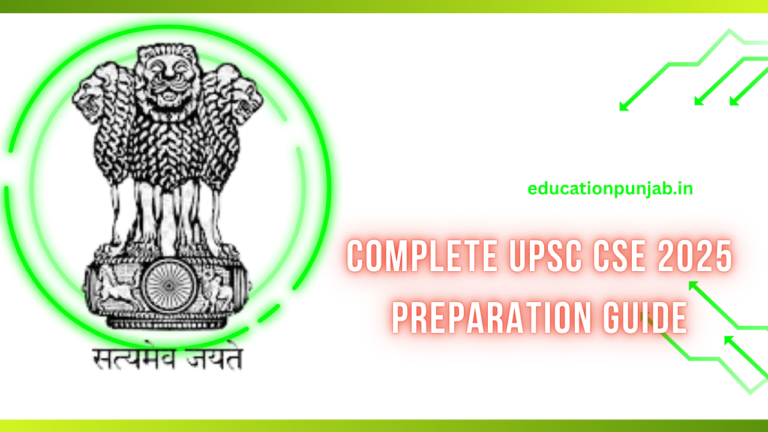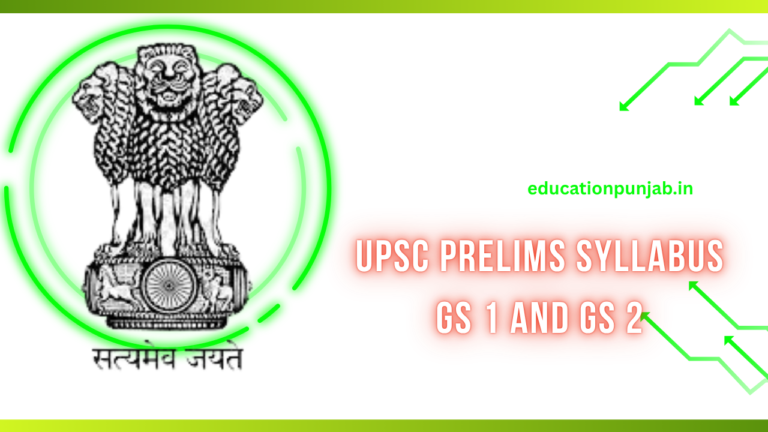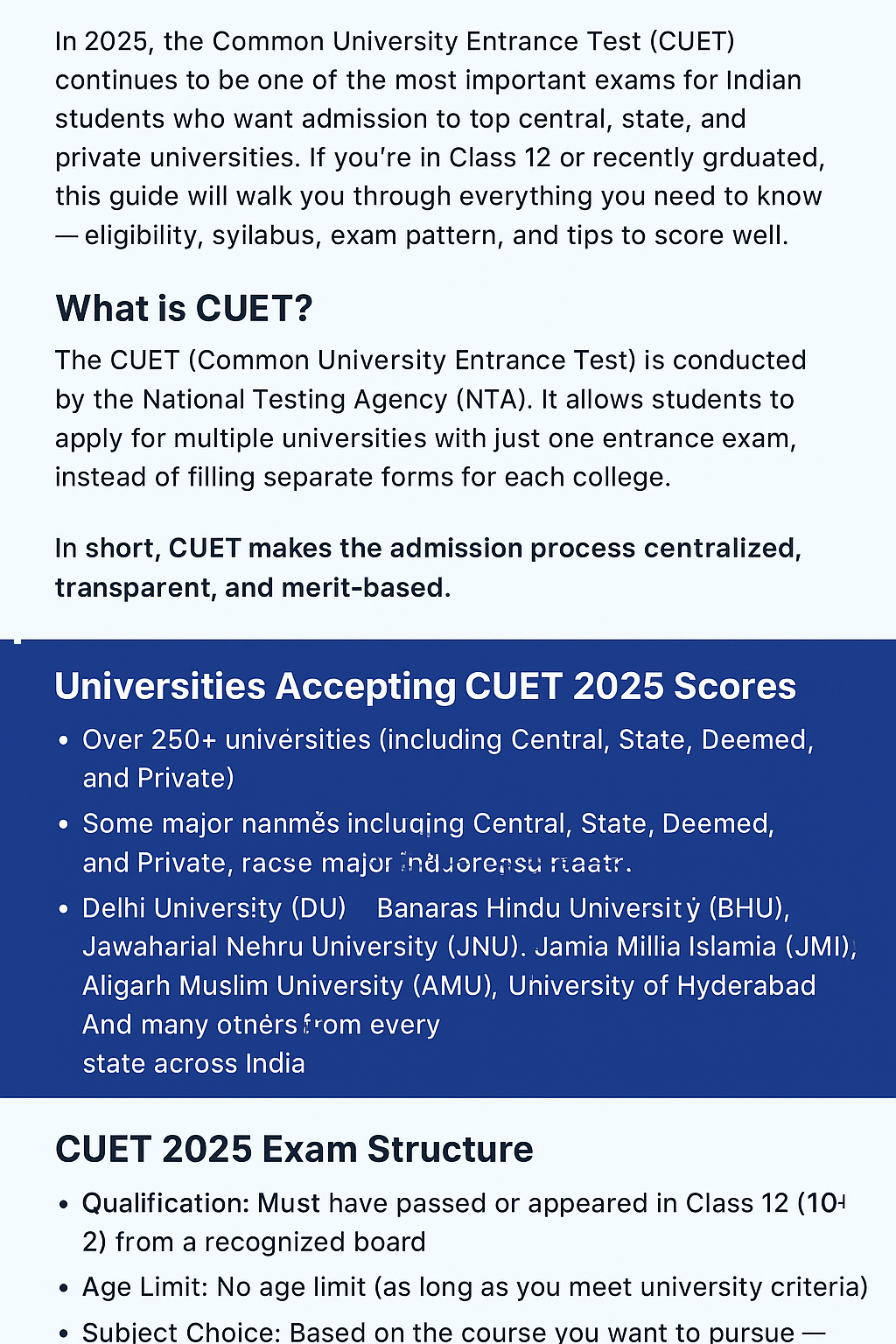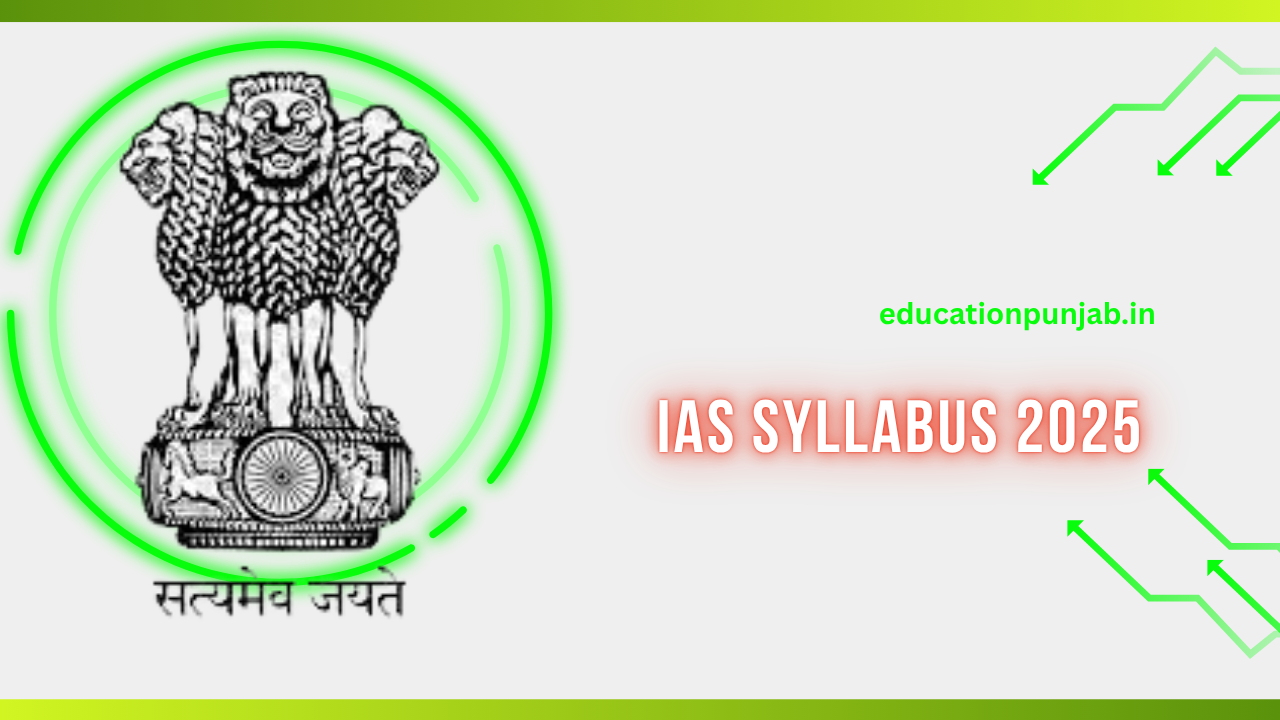
IAS Syllabus 2025
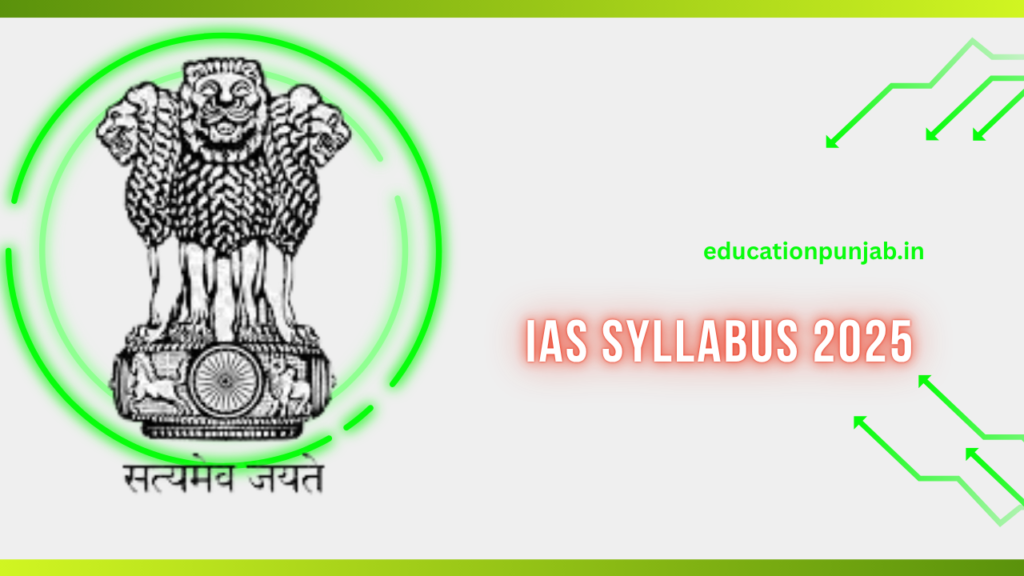
IAS Syllabus 2025
IAS Syllabus 2025: The UPSC Civil Services Examination (CSE), commonly known as the IAS exam, has a comprehensive syllabus covering three stages: Preliminary Exam, Mains Exam, and Interview (Personality Test). Below is a concise breakdown of the syllabus for each stage, based on the official UPSC guidelines, to aid your preparation for the 2025 exam.
Also Read : IAS Exam Preparation 2025
1. Preliminary Exam Syllabus
The Prelims consist of two objective-type papers (both 200 marks). It is a screening stage, and only General Studies Paper I marks count toward the cutoff. Paper II (CSAT) is qualifying (33% required).
General Studies Paper I (GS-I)
- Topics:
- Current Events: National and international importance.
- History of India and Indian National Movement: Ancient, medieval, and modern history, with emphasis on the freedom struggle.
- Indian and World Geography: Physical, social, and economic geography of India and the world.
- Indian Polity and Governance: Constitution, political system, Panchayati Raj, public policy, rights issues, etc.
- Economic and Social Development: Sustainable development, poverty, inclusion, demographics, social sector initiatives.
- Environment and Ecology: General issues on environmental ecology, biodiversity, and climate change (no specialized knowledge required).
- General Science: Basic concepts and recent developments in science and technology.
- Key Focus: Broad understanding of events and concepts, analytical ability, and factual clarity.
General Studies Paper II (CSAT)
- Topics:
- Comprehension.
- Interpersonal skills, including communication skills.
- Logical reasoning and analytical ability.
- Decision-making and problem-solving.
- General mental ability.
- Basic numeracy (numbers, orders of magnitude, etc., Class X level).
- Data interpretation (charts, graphs, tables, etc., Class X level).
- Key Focus: Qualifying paper (66/200 marks required). Tests basic aptitude and comprehension skills.
2. Mains Exam Syllabus
The Mains consist of nine subjective papers (total 1750 marks for merit). Two papers are qualifying, and seven are counted for ranking.
Qualifying Papers (300 marks each, not counted for ranking)
- Paper A: Indian Language (Choose one from the Eighth Schedule languages, e.g., Hindi, Tamil, etc.):
- Comprehension of given passages.
- Precis writing.
- Usage and vocabulary.
- Short essays.
- Translation from English to the chosen language and vice versa.
- Note: Not applicable for candidates from Arunachal Pradesh, Manipur, Meghalaya, Mizoram, Nagaland, and Sikkim.
- Paper B: English:
- Comprehension of given passages.
- Precis writing.
- Usage and vocabulary.
- Short essays.
Merit-Based Papers (250 marks each, total 1750 marks)
- Paper I: Essay:
- Write essays on multiple topics, focusing on clarity, coherence, and analytical depth.
- Topics often cover social, economic, political, or philosophical issues.
- Paper II: General Studies I (Indian Heritage and Culture, History, Geography):
- Indian culture: Art forms, literature, architecture from ancient to modern times.
- Modern Indian history: Significant events, personalities, and issues from the mid-18th century.
- Freedom struggle: Stages, contributors, and events.
- Post-independence consolidation and reorganization.
- World history: Industrial Revolution, world wars, political philosophies (e.g., communism, capitalism).
- Indian society: Diversity, role of women, urbanization, globalization effects.
- Geography: Physical geography, resources, industrialization, geophysical phenomena (e.g., earthquakes, tsunamis).
- Paper III: General Studies II (Governance, Constitution, Polity, International Relations):
- Indian Constitution: Features, amendments, significant provisions.
- Functions and responsibilities of Union and States, federal structure, devolution of powers.
- Separation of powers, dispute redressal mechanisms.
- Parliament and State Legislatures: Structure, functioning, powers.
- Governance: Government policies, transparency, accountability, e-governance.
- Social justice: Welfare schemes, vulnerable sections.
- International relations: India’s relations with neighbors, global groupings, diaspora, and international institutions.
- Paper IV: General Studies III (Technology, Economic Development, Environment, Security):
- Indian economy: Planning, resource mobilization, growth, development, employment.
- Agriculture: Cropping patterns, irrigation, subsidies, food security.
- Science and technology: Developments, applications, and effects on daily life.
- Environment: Conservation, pollution, climate change, environmental impact assessment.
- Disaster management.
- Security: Internal and external security, cyber security, terrorism, border management.
- Paper V: General Studies IV (Ethics, Integrity, and Aptitude):
- Ethics and human interface: Essence, determinants, consequences of ethics in human actions.
- Attitude: Content, structure, influence on behavior.
- Aptitude and foundational values for civil services: Integrity, impartiality, objectivity, empathy.
- Emotional intelligence: Concepts and applications in governance.
- Moral thinkers and philosophers from India and the world.
- Public service values: Ethics in public administration, probity, corruption challenges.
- Case studies: Ethical dilemmas and decision-making in governance.
6–7. Paper VI and VII: Optional Subject (Two Papers): - Candidates choose one optional subject (e.g., Sociology, Public Administration, Geography, History, etc.).
- Syllabus varies by subject; detailed topics available on the UPSC website.
- Each paper focuses on in-depth knowledge, often aligned with graduation-level study.
3. Interview (Personality Test) Syllabus (275 marks)
- No fixed syllabus; assesses personality, leadership, and suitability for civil services.
- Key Areas:
- Mental alertness, critical assimilation, clear exposition, and balanced judgment.
- Interest in current affairs, national and international events.
- Awareness of social, economic, and political issues.
- Leadership qualities, communication skills, and ethical grounding.
- Format: Panel discussion, often based on the candidate’s Detailed Application Form (DAF), hobbies, education, and work experience.
Key Notes
- Syllabus Source: The official UPSC website (upsc.gov.in) provides the detailed syllabus. Always refer to it for accuracy.
- Overlap: Prelims and Mains syllabi overlap significantly (e.g., history, polity, geography). Prepare for Mains early to cover Prelims topics.
- Current Affairs: Crucial for both Prelims and Mains. Focus on dynamic topics like government schemes, international relations, and environmental issues.
- Optional Subject: Choose based on interest, availability of resources, and scoring potential. Popular choices include Sociology, Geography, and Public Administration.
Tips for Syllabus Coverage
- Start with NCERTs: Build a foundation for GS subjects using Class 6–12 NCERT textbooks.
- Prioritize High-Weightage Areas: Polity, economy, and current affairs dominate Prelims and Mains.
- Practice: Solve previous years’ question papers (PYQs) to understand the syllabus scope and question patterns.
- Revision: Regularly revise static and dynamic portions to retain information.
- Answer Writing: For Mains, practice concise, structured answers aligned with the syllabus.

